Chapter 17: Conclusion and Next Steps

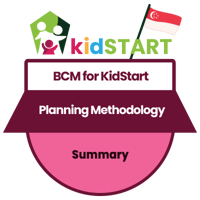 This concluding chapter provides a comprehensive overview of the key takeaways and recommendations outlined in this eBook, "Implementing Business Continuity Management for KidSTART Singapore: A Practical Guide."
This concluding chapter provides a comprehensive overview of the key takeaways and recommendations outlined in this eBook, "Implementing Business Continuity Management for KidSTART Singapore: A Practical Guide."
We will revisit the core principles of BCM and its critical importance for KidSTART in ensuring the continued delivery of essential services to vulnerable children and families.
This chapter will summarise the key findings and recommendations from each section of the eBook, emphasising the importance of understanding KidSTART's unique organisational context, conducting thorough risk assessments, developing and implementing robust BCM Plans, and fostering a culture of preparedness and resilience.
By understanding the organisation's unique characteristics, identifying and prioritising risks, and developing and implementing effective BCM Plans, KidSTART can enhance its resilience and ensure the continued delivery of essential services to vulnerable children and families, even in the face of unforeseen disruptions.
Key Takeaways
- The Importance of BCM: BCM is crucial for KidSTART to ensure the continued delivery of essential services, protect vulnerable families, and maintain operational resilience.
- Understanding the Organisation: A thorough understanding of KidSTART's mission, vision, values, organisational structure, stakeholders, and operating environment is essential for developing an effective BCMS.
- Key BCM Components: The BCM framework encompasses key elements such as risk analysis and review, business impact analysis, BC strategy, plan development, testing and exercising, and program management.
- Focus on Vulnerable Populations: Throughout the BCM process, it is crucial to prioritise the needs and well-being of vulnerable children and families.
- Continuous Improvement: BCM is an ongoing process that requires constant review, improvement, and adaptation to evolving risks and circumstances.
Next Steps
- Form a BCM Team: Establish a dedicated BCM team with representatives from key departments across the organization.
- Conduct a Thorough Risk Assessment: Conduct a comprehensive risk assessment to identify and prioritise potential threats.
- Develop and Implement BCM Plans: Create detailed BCM Plans for critical business functions and test their effectiveness through regular exercises.
- Communicate and Train: Communicate the BCM Plan to all stakeholders and train staff on their roles and responsibilities.
- Regular Reviews and Updates: The BCMS should be reviewed and updated regularly to ensure its ongoing effectiveness and relevance.
Summing Up ...
By implementing the recommendations outlined in this eBook and fostering a culture of preparedness and resilience, KidSTART can effectively mitigate risks, ensure the continued delivery of essential services, and positively impact the lives of children and their families.
This concluding chapter emphasises the key takeaways from the eBook and provides a roadmap for KidSTART Singapore to implement its BCMS.
By following these recommendations, KidSTART can enhance its resilience and ensure the continued success of its mission.
More Informa
More Information About Business Continuity Management Courses

 To learn more about the course and schedule, click the buttons below for the BCM-300 Business Continuity Management Implementer [B-3] course and the BCM-5000 Business Continuity Management Expert Implementer [B-5].
To learn more about the course and schedule, click the buttons below for the BCM-300 Business Continuity Management Implementer [B-3] course and the BCM-5000 Business Continuity Management Expert Implementer [B-5].
![Register [BL-B-3]*](https://no-cache.hubspot.com/cta/default/3893111/ac6cf073-4cdd-4541-91ed-889f731d5076.png) |
 |
 |
 |
 |
 |
![FAQ [BL-B-3]](https://no-cache.hubspot.com/cta/default/3893111/b3824ba1-7aa1-4eb6-bef8-94f57121c5ae.png) |
If you have any questions, click to contact us.
|
 |
 |
 |
 |


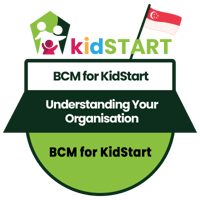
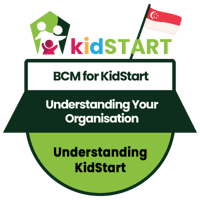
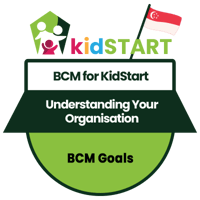
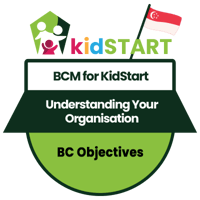
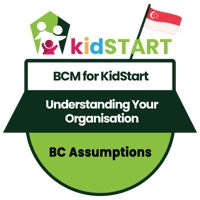
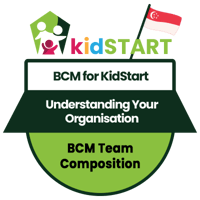
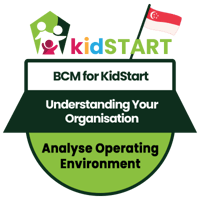
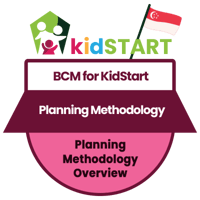
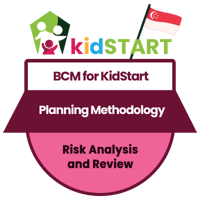
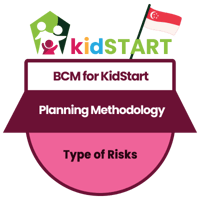
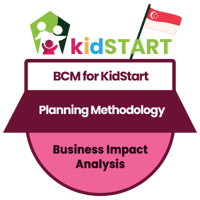
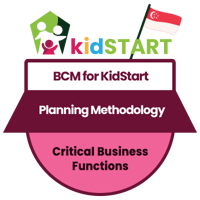
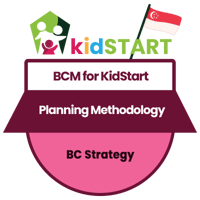
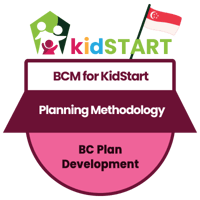
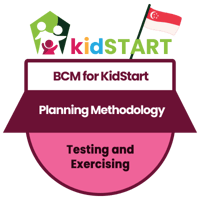
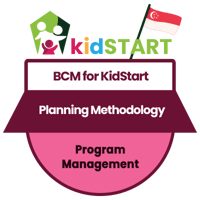
![Email to Sales Team [BCM Institute]](https://no-cache.hubspot.com/cta/default/3893111/3c53daeb-2836-4843-b0e0-645baee2ab9e.png)

